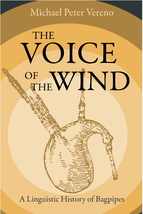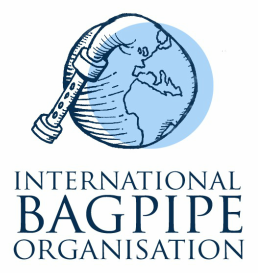Publications |
Upcoming events |
|
In January 2021, the International Bagpipe Organisation became a publisher. It launched its activity with Dr Michael Peter Vereno's book, The Voice of the Wind, translated from its initial version in German, Die Stimme des Windes (published in 2015 with Baar Verlag, Hamburg).
International Bagpipe Organisation Editor: Arle Lommel The International Bagpipe Organisation welcomes manuscript proposals. Proposed manuscripts will be based on thorough research evidenced within the writing. All book proposals and manuscripts will be academically peer-reviewed. For any proposals, please email [email protected] with the following information. A book proposal in one single word document including:
We look forward to hearing from you. |

The Voice of the Wind
by Michael Peter Vereno Launched on 10 March 2021 Scholars have long provided bagpipes with a creation myth that stretches back to the ancient Near East, where they supposedly appear in the biblical Book of Daniel. It then has the Greeks playing them and Roman legions carrying them to the ends of the Empire. But Michael Peter Vereno’s The Voice of the Wind calls this story into question. Using linguistic analysis, Vereno shows that the oldest ‘evidence’ is often dubious at best and demonstrates that supposed ancient stories of bagpipe origins— and sometimes even their names—were later scholarly creations to give them a respectable, ancient pedigree. His erudite examination calls into question many conclusions and settled ‘facts’ to reveal a more enlightening story of bagpipe origins. It redefines its field and represents a significant contribution to historical organology. Readers with an interest in modern bagpipes, the history of instruments, and the interpretation of ancient and more recent textual sources will all find something to engage them and complicate their beliefs. |
